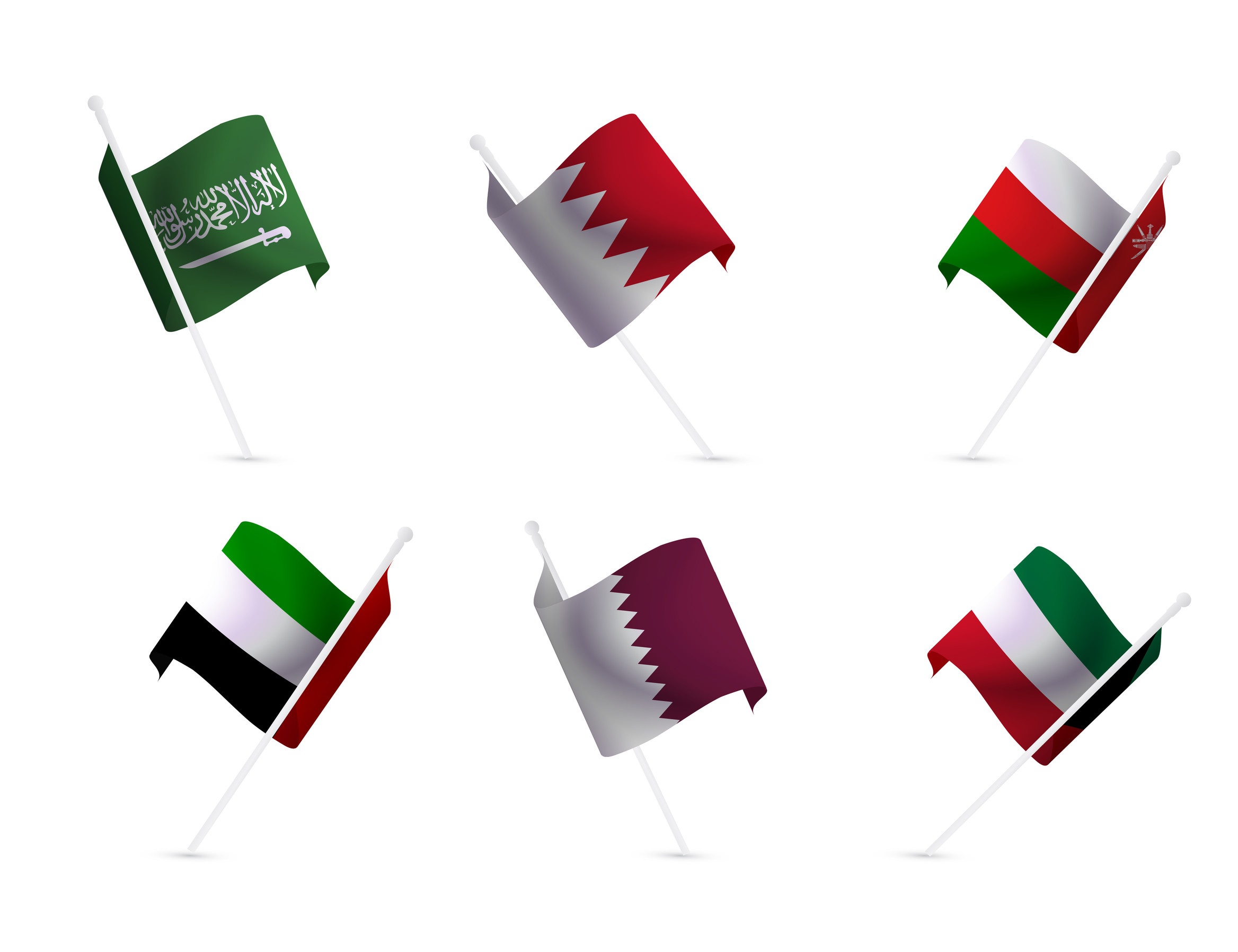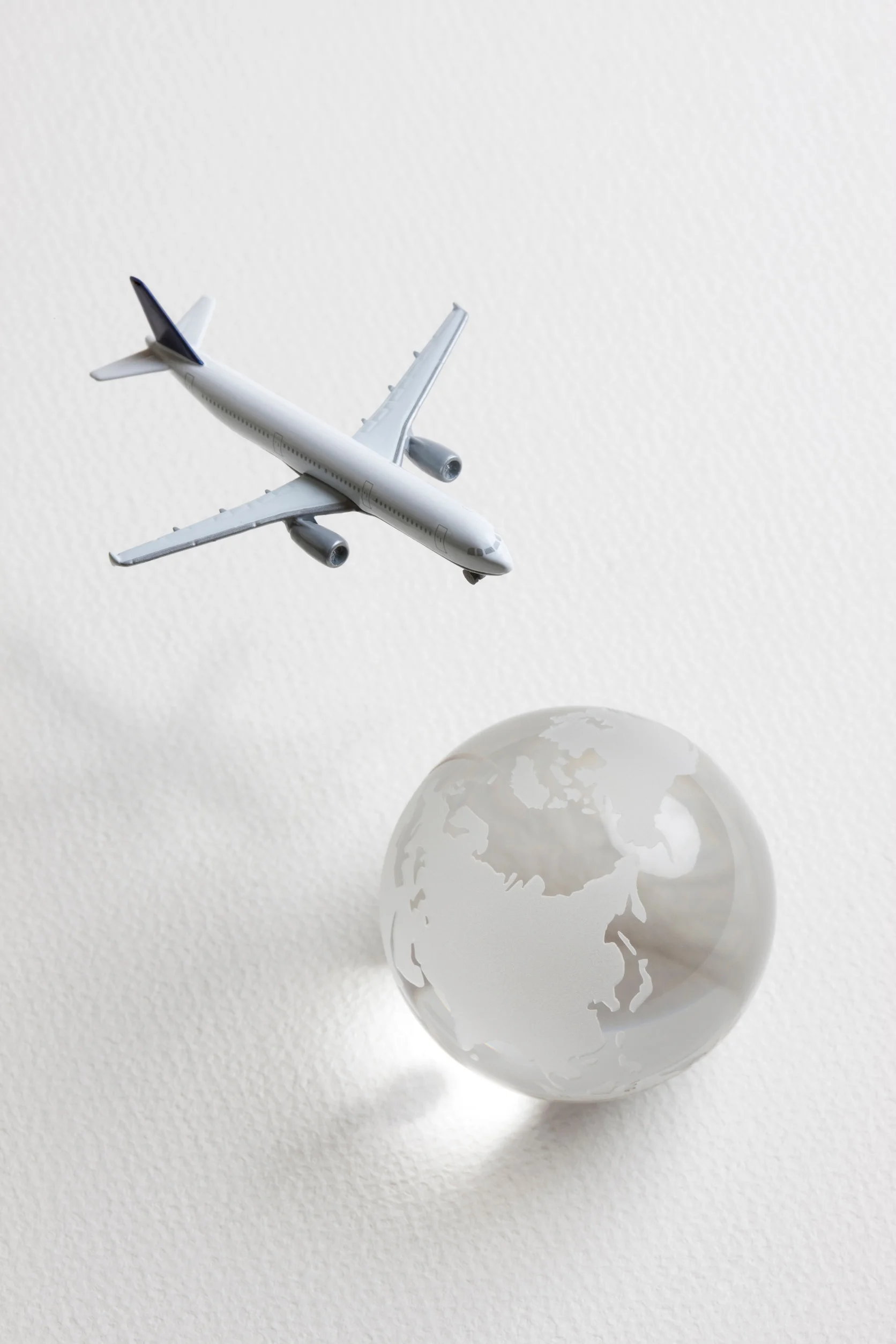Cameroon eVisa for Gulf Nationals
Cameroon, known for its rich cultural and natural diversity, has made travel easier with its new Cameroon eVisa system. Launched in April 2023, the online platform replaces the traditional embassy application process, making it faster and more convenient. For Gulf Cooperation Council (GCC) nationals (Saudi Arabia, UAE, Qatar, Kuwait, Oman, and Bahrain), this means you can now apply for a visa to Cameroon entirely online with no embassy visit needed. To enjoy a hassle-free entry, simply apply for Cameroon eVisa through the official portal and prepare for an unforgettable experience in this vibrant country.
Cameroon eVisa Overview for Gulf Nationals

As a general rule, citizens of all GCC countries require a visa to enter Cameroon. The eVisa system is now the primary and most convenient method to obtain this visa for purposes such as tourism, business, and family visits. The system aims to speed up approvals, enhance security, and promote tourism and investment by simplifying entry procedures. While the application is online, in some cases, a physical visit to a designated Embassy might still be required for biometric capture or visa sticker collection, or biometrics are captured upon arrival.
Document Checklist for Gulf Nationals Applying for a Cameroon eVisa
Here’s a simplified checklist of commonly required documents. All documents must be scanned clearly and uploaded:
- Valid Passport Biodata Page: Passport must be valid for at least 6 months beyond your intended departure from Cameroon, with at least two blank pages.
- Recent Passport-Sized Photo: Color photo, white background, clear facial features, taken within the last six months.
- Round-Trip Flight Itinerary/Booking: Confirmation of your flight reservations, showing entry and exit dates.
- Proof of Accommodation: Confirmed hotel booking for your entire stay OR a legalized invitation/accommodation certificate from a host in Cameroon (certified by local authorities).
- Proof of Sufficient Funds: Recent bank statements (usually 3 months) or other financial documents showing you can cover your expenses.
- Mandatory Yellow Fever Vaccination Certificate (ICVP): A scan of your yellow "Yellow Card," proving vaccination at least 10 days before arrival.
- Purpose-Specific Documents: (e.g., business invitation, medical appointment letter, family invitation).
Applying for a Cameroon eVisa from the Gulf
The eVisa application process for Gulf Nationals is designed to be straightforward:
Step 1: Register and complete the application form
Create an account on the Cameroon eVisa website Application, and fill in your travel and passport details.
Step 2: Upload documents and make payment
Submit scanned copies of required documents and pay the visa fee online using a bank card.
Step 3: Receive and print your eVisa
After approval, download the eVisa with QR code and print it for arrival.
Cameroon Single vs. Multiple Entry eVisa for Gulf Visitors
When applying, you'll typically have options for:
- Single Entry Visa: Allows you to enter Cameroon once. Once you exit, the visa becomes invalid, regardless of its validity period. Suitable for a single, straightforward trip.
- Multiple Entry Visa: Allows for multiple entries into Cameroon within a specified overall validity period (e.g., 90 days, 180 days, or 360 days). Crucially, each individual stay is still limited to a maximum duration (e.g., 30, 90, or 180 days). This is ideal if you plan to visit neighboring countries and re-enter Cameroon or for frequent business trips.
Choose the multiple-entry option if your itinerary involves leaving and re-entering Cameroon.
Processing Times for Cameroon eVisa in the Gulf
Cameroon's eVisa system offers different processing speeds:
- Normal Processing: Typically takes up to 9 business days from the time of online payment. Some sources indicate.
- Express Processing (Rush): Can reduce processing time to 5 business days for an additional fee.
- Super Rush: Sometimes available for even faster processing, but this comes with a higher cost.
When to Apply: It's highly recommended to apply at least 2-4 weeks before your intended travel date. This allows for potential delays, requests for additional documents, or if you need to visit an embassy for biometrics. You cannot apply more than 6 months before your trip.
What Causes Delays of Cameroon eVisa Processing:
- Incomplete or inaccurate application forms.
- Unclear or poor-quality document uploads.
- Discrepancies between information provided and documents.
- Public holidays in Cameroon or your country.
- Additional security checks or requests for more information.
Visa Fees for Gulf Nationals: How Much Does a Cameroon eVisa Cost?
The cost of a Cameroon eVisa depends on several factors, including the type of visa you apply for (tourist, business, etc.), the number of entries (single or multiple), and your desired stay duration. Since Cameroon offers different eVisa types, fees will vary. Gulf nationals can check the exact amount using the official Cameroon eVisa fee page, which provides a fee calculator to help you confirm the correct price based on your travel plans.
Invitation Letters vs. Hotel Bookings: Which One Do You Need?
The type of proof of accommodation you need depends on your travel purpose:
- For Tourists (Staying in Hotels/Guesthouses): A confirmed hotel booking for your entire duration of stay. This is usually the easiest option.
- For Visiting Friends or Family: A formal invitation/accommodation certificate from your host in Cameroon. This letter must be legalized or certified by a competent local authority in Cameroon (e.g., local police station or municipality). This is a crucial step and often overlooked by first-time visitors, leading to rejections or delays.
- For Business Travelers: An invitation letter from the Cameroonian company you are visiting.
Cameroon eVisa Requirements for Gulf Business Travelers

For Gulf business travelers, the general eVisa requirements apply, with additional specific documents:
- All Standard Documents: (Passport, photo, Yellow Fever, flight, accommodation, financial proof).
- Invitation Letter from Cameroonian Company: A formal letter from a registered company in Cameroon, stating the purpose of your visit, the duration, your activities, and confirming their responsibility for your stay (accommodation, expenses if applicable). This letter should be on company letterhead.
- Company Registration Details: Sometimes, the Cameroonian company's business registration documents might be required.
- Letter from Your Gulf-Based Company: A letter from your employer in the GCC country explaining your business trip, your position, and confirming financial responsibility.
- Business Itinerary: A detailed schedule of meetings, conferences, or activities during your stay.
Tips for Approval: Ensure the invitation letter is clear, specific, and preferably legalized or stamped by a relevant authority (e.g., Chamber of Commerce or local municipality). Strong ties to your home country (e.g., stable employment, family) can also strengthen your application.
What to Do If Your eVisa Application is Delayed or Rejected
Applying for a Cameroon eVisa is usually smooth, but sometimes delays or rejections happen. If you’re a Gulf national (or applying from anywhere else), here’s how to handle it:
Check Application Status: The eVisa portal allows you to track your application status. Monitor it regularly.
Common Reasons for Delay/Rejection:
- Incomplete/Incorrect Information: Mismatched details between the form and passport, missing fields.
- Poor Document Quality: Blurry scans, unreadable text, incorrect photo size/background.
- Missing Documents: Forgetting to upload a required document (e.g., Yellow Fever, invitation letter).
- Payment Issues: Failed transactions, insufficient funds.
- Non-Legalized Invitation: For those visiting family/friends, the invitation letter was not properly certified in Cameroon.
- Security Concerns: Red flags during background checks.
How to Fix:
- Contact Cameroon eVisa Support: Use the contact information on the official eVisa portal for assistance.
- Resubmit (if allowed): If the portal allows, correct the errors and resubmit the application.
- Provide Missing Info: Respond promptly to any requests for additional documents or clarification.
- Verify Invitation: If visiting friends/family, ensure your host has followed all steps to legalize the invitation letter.
Cameroon eVisa for Gulf Nationals with Dual Citizenship
Cameroon does not officially accept dual nationality. If you are from a Gulf country and also have Cameroonian citizenship (especially if you got it later), Cameroon likely sees you as no longer Cameroonian.
What You Should Do:
- Apply with Your Foreign Passport: Use your Gulf passport (not Cameroonian) when applying for a Cameroon eVisa.
- Be Consistent: Use the same passport for your visa, flight booking, and at the airport.
- Don’t Show Cameroonian Passport: Unless an immigration officer clearly asks, do not present your Cameroonian passport. It can cause confusion, delays, or questions about your status.
Cameroon eVisa Guidelines for Gulf-Based Expats (Non-Gulf Passport Holders)
Yes, expats residing in GCC countries (e.g., Indian, Filipino, Egyptian, Nigerian passport holders) can generally apply for the Cameroon eVisa from their country of residence in the Gulf.
The application process and requirements remain the same as for Gulf Nationals. You will apply online via the official portal, upload your documents, pay the fees, and follow the instructions for biometric capture (either at an embassy if available, or upon arrival in Cameroon). Your country of residence in the Gulf does not typically prevent you from applying for the eVisa from there.
Cameroon eVisa for Gulf Minors Traveling with Parents or Guardians
When traveling with minors from the Gulf to Cameroon, additional documents are required:
- Minor's Passport: Valid for at least 6 months.
- Minor's eVisa: Each child, regardless of age (from 9 months upwards for Yellow Fever), needs their own eVisa.
- Minor's Yellow Fever Certificate: Mandatory for children aged 9 months or over.
- Birth Certificate: Copy of the child's birth certificate.
- Parents' Passports/ID: Photocopies of both parents' passports or national ID cards.
- Consent Letter (if traveling with one parent or guardian): If the child is traveling with only one parent, a notarized consent letter from the absent parent permitting the child to travel. If traveling with a guardian, a notarized consent letter from both parents and proof of guardianship.
- Flight Ticket of Non-Accompanying Parent: If one parent is not traveling, a copy of their flight ticket (if applicable).
Cameroon Visa on Arrival for Gulf Nationals: Myth or Fact?
For travelers from Gulf countries, getting a real "Visa on Arrival" in Cameroon is mostly a myth. While Cameroon used to allow limited visas at the airport, this changed with the new eVisa system.
- What Actually Happens at the Airport: If you already applied online and got your eVisa approval (with a QR code), you’ll get the visa sticker at the airport after fingerprinting and taking a photo. It might seem like a visa on arrival, but you must apply online and be approved before your trip.
- Can You Travel to Cameroon Without an e-Visa?: No. If you don’t have an approved eVisa or special exemption, you may be denied boarding at the airport or refused entry when you land in Cameroon.
What to Expect at Cameroon Immigration for Gulf Visitors
Upon arrival at Douala (DLA) or Yaoundé (NSI) International Airports:
- Immigration Counters: Proceed to the immigration counters.
- Document Presentation: Present your valid passport, your printed eVisa authorization (with the QR code), and your original Yellow Fever Vaccination Certificate.
- Biometric Capture: Immigration officers will likely collect your biometric data (fingerprints and possibly a photo) using their systems.
- QR Code Scan: Your eVisa QR code will be scanned to verify your application details.
- Visa Sticker Affixation: Once verified, a physical visa sticker will be affixed into a blank page of your passport.
- Passport Stamping: Your passport will then be stamped with the entry date and the "admitted until" date, indicating the length of your authorized stay.
Be patient, polite, and have all your documents readily accessible.
Travel Tips for Gulf Nationals Visiting Cameroon
Here are the essential travel tips for a smooth and enjoyable journey in Cameroon:
- Safety: Exercise a high degree of caution due to violent crime and regional instability in certain areas (Northwest, Southwest, Far North, and border regions should be avoided). Be aware of your surroundings, avoid displaying wealth, and use trusted transportation.
- Health: Strictly adhere to malaria prevention (antimalarials, repellent, nets). Practice strict food and water hygiene ("Boil it, cook it, peel it, or forget it."). Ensure all recommended vaccinations are up-to-date. Travel insurance with medical evacuation is highly recommended.
- Money: The local currency is the Central African CFA Franc (XAF). Major cities have ATMs, but cash is king, especially outside urban centers. Carry smaller denominations. Credit card acceptance is limited.
- Etiquette: Dress modestly, especially in public and religious sites. Always ask for permission before taking photos of people. Greet people politely ("Bonjour" or "Bonsoir" are widely used). Be patient and understand that things often operate on "African time."
- Language: French and English are the official languages. French is more widely spoken across the country. Learning a few basic phrases will be appreciated.
- Local Transport: Use pre-arranged taxis in cities. Avoid walking alone at night. Be cautious with motorcycle taxis ("bend-skins") due to high accident rates.
Cameroon Airport Arrival Process for eVisa Holders
Arriving in Cameroon with an eVisa is generally smooth, but being prepared helps avoid delays. Here's what to expect step by step when you land at Douala, Yaoundé, or any other international airport:
- Disembarkation: Follow signs for "Arrivals" or "Immigration."
- Immigration Counters: Join the queue for foreign nationals.
- Document Handover: Present your passport, printed eVisa authorization (with QR code), and Yellow Fever card to the immigration officer.
- Biometrics & Questions: Your fingerprints and a photo will be taken. The officer may ask about your purpose of visit, duration of stay, and accommodation.
- Visa Affixation & Stamp: If all is in order, the eVisa sticker will be affixed to your passport, and an entry stamp will be placed, indicating your authorized stay duration.
- Baggage Claim & Customs: Proceed to baggage claim, collect your luggage, and then pass through customs.
The process is generally efficient for eVisa holders, provided all documents are correct and readily available.
Do Gulf Nationals Need Transit Visas for Cameroon Stopovers?
Yes, if your layover in Cameroon is longer than 24 hours, you will generally need a transit eVisa.
- Under 24 Hours: If you are merely transiting through a Cameroonian airport and do not intend to leave the international transit area (airside) and your next flight departs within 24 hours, you typically do not need a transit visa.
- Over 24 Hours / Leaving Airport: If your layover exceeds 24 hours, or if you wish to leave the airport's international transit area, you must apply for a transit eVisa beforehand.
How to Get a Transit eVisa: Apply through the same official eVisa portal. The process is similar to a short-stay visa but requires:
- Proof of onward travel (flight ticket to your final destination).
- A visa or authorization to enter your final destination country.
- International vaccination certificate (Yellow Fever).
Frequently Asked Questions
Do Gulf nationals need a visa to visit Cameroon?
Yes. Citizens of all six GCC countries need an e-Visa before traveling to Cameroon.
What happens when I arrive in Cameroon?
You present your passport, eVisa QR code, and Yellow Fever card. Your biometrics will be taken and a visa sticker added to your passport.
What if I have dual citizenship (Cameroonian + Gulf)?
Use your Gulf passport for the eVisa. Cameroon doesn’t recognize dual nationality in most cases.
Can I change my Cameroon eVisa type after applying?
No. You must cancel and reapply with the correct type if you selected the wrong one.
Can I extend my stay once in Cameroon?
Extensions may be possible by applying through local immigration offices in Cameroon before your visa expires.
Disclaimer: While this information was last updated in January 2026, we strongly suggest confirming all travel details with the appropriate governmental agencies, embassies, and airlines.
Applying for a Cameroon eVisa
- Step 1: Complete the online application form with your personal details and passport information.
- Step 2: Proceed to securely pay online using your credit card.
- Step 3: Check your email for payment confirmation and receipt of your Cameroon eVisa, which will be sent electronically.



